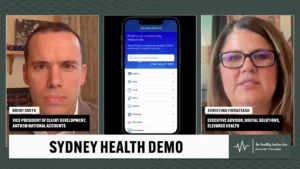Feds Send $180 Million to States Rethinking K-12 Education
U.S. Secretary of Education Betsy DeVos announced today more than $180 million in new grant funding will be awarded to 11 states rethinking education to better serve students during the COVID-19 pandemic. The Rethink K-12 Education Models Grant will support states’ efforts to create new, innovative ways for students to continue learning in ways that meet their needs. Awardees include Georgia, Iowa, Louisiana, Maine, North Carolina, New York, Rhode Island, South Carolina, South Dakota, Tennessee, and Texas. The awards range from $6 million to $20 million.
“Ensuring every student can continue to learn during the coronavirus pandemic requires innovation from local education leaders and a laser-like focus on doing what’s right for students,” said Secretary DeVos. “This grant will help states adapt and overcome challenges to strengthen education both now and for the longer term. If we’ve learned anything from this pandemic, it’s that the antiquated one-size-fits-all approach to education is no longer tenable and education going forward must be more adaptable and student-centered. I want to congratulate today’s awardees for making the needed effort to rethink education on behalf of their students.”
Congress set aside 1% of the $30.75 billion allotted to the Education Stabilization Fund through the CARES Act for grants to states with the highest coronavirus burden. The Department of Education announced the Rethink K-12 Education Models (REM) grant competition in April 2020, inviting any state educational agency to apply. The program supports new, innovative ways to access education with an emphasis on meeting students’ needs during the coronavirus national emergency. Specifically, it called for projects to provide families with:
- Microgrants, so that states can ensure families have access to the technology and services to advance learning remotely (absolute priority 1);
- Statewide virtual learning and course access programs, so that students can access a full range of subjects, even those not taught in their assigned setting (absolute priority 2); or
- New, field-initiated models for providing remote education to ensure that every child is learning and preparing for successful careers and lives (absolute priority 3).
|
State |
Absolute Priority # |
Funding Level | |
| Louisiana Department of Education |
LA |
1 |
$16,999,992 |
| Tennessee Department of Education |
TN |
1 |
$20,000,000 |
| Rhode Island Department of Elementary and Secondary Education |
RI |
2 |
$10,898,643 |
| Texas Education Agency |
TX |
2 |
$19,978,625 |
| Iowa Department of Education |
IA |
2 |
$17,681,016 |
| Georgia Department of Education |
GA |
2 |
$18,594,304 |
| South Carolina Department of Education |
SC |
3 |
$15,049,608 |
| New York State Education Department |
NY |
3 |
$19,986,089 |
| North Carolina Department of Public Instruction |
NC |
3 |
$17,632,125 |
| South Dakota Department of Education |
SD |
3 |
$6,883,481 |
| Maine Department of Education |
ME |
3 |
$16,958,613 |
|
TOTAL: |
$180,662,496 |
||
Key highlights from some of the awardees include:
- Texas will invest in developing new statewide virtual courses as part of its Texas Home Learning program, including the creation of new open resources for English Learners in reading and math, with a goal of reaching over one million English Learner students and providing professional development to more than 300,000 teachers.
- New York will provide over 190,000 teachers and educational leaders with a combined 450,000 hours of professional support to implement effective practices in remote/hybrid teaching and learning, which, in turn, will reach an estimated two million students.
- Louisiana will provide over 75,000 students access to microgrants for remote learning resources, including at least 12,000 who will receive devices or hotspots through the program.
- Rhode Island will enhance its virtual Advanced Course Access program so that middle and high school students have access to a richer, more diverse set of course offerings, and elementary school students can access the program as well.
- South Carolina will provide all students access to a robust virtual education ecosystem, including the use of “datacasting,” an innovative concept that can help provide instructional content to students without internet access.
Applications were evaluated by a panel of independent peer reviewers, and the highest-scoring applications received funding. Given the nature of the national emergency, states with the highest coronavirus burden were prioritized.
The Department continues to update www.ed.gov/coronavirus with information for students, parents, educators and local leaders about how to prevent the spread of COVID-19.









